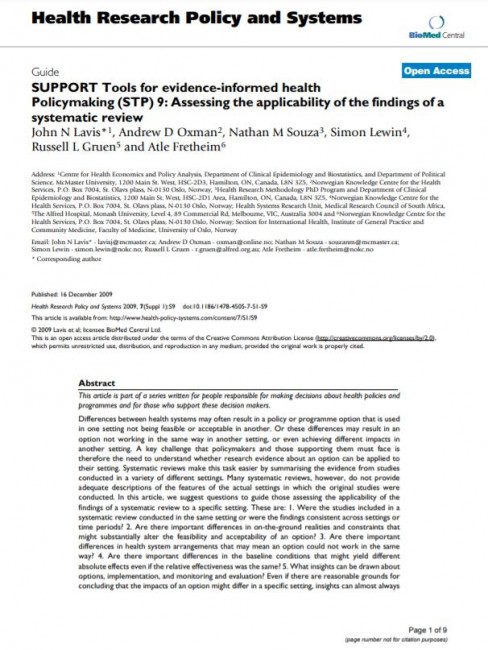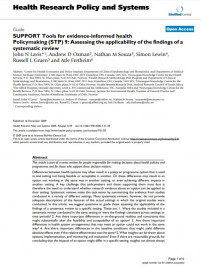This article is part of a series written for people responsible for making decisions about health policies and programmes and for those who support these decision makers.
This article suggests questions to guide those assessing the applicability of the findings of a systematic review to a specific setting. These are: 1. Were the studies included in a systematic review conducted in the same setting or were the findings consistent across settings or time periods? 2. Are there important differences in on-the-ground realities and constraints that might substantially alter the feasibility and acceptability of an option? 3. Are there important differences in health system arrangements that may mean an option could not work in the same way? 4. Are there important differences in the baseline conditions that might yield different absolute effects even if the relative effectiveness was the same? 5. What insights can be drawn about options, implementation, and monitoring and evaluation? Even if there are reasonable grounds for concluding that the impacts of an option might differ in a specific setting, insights can almost always be drawn from a systematic review about possible options, as well as approaches to the implementation of options and to monitoring and evaluation.



